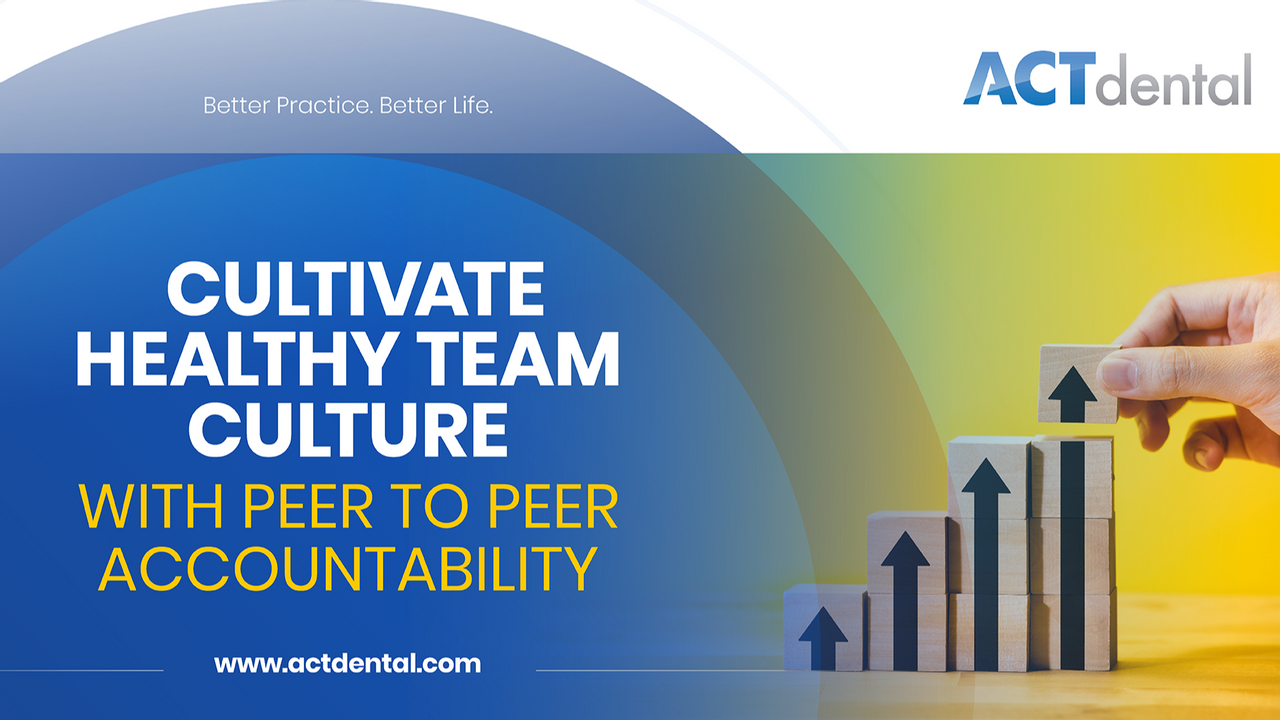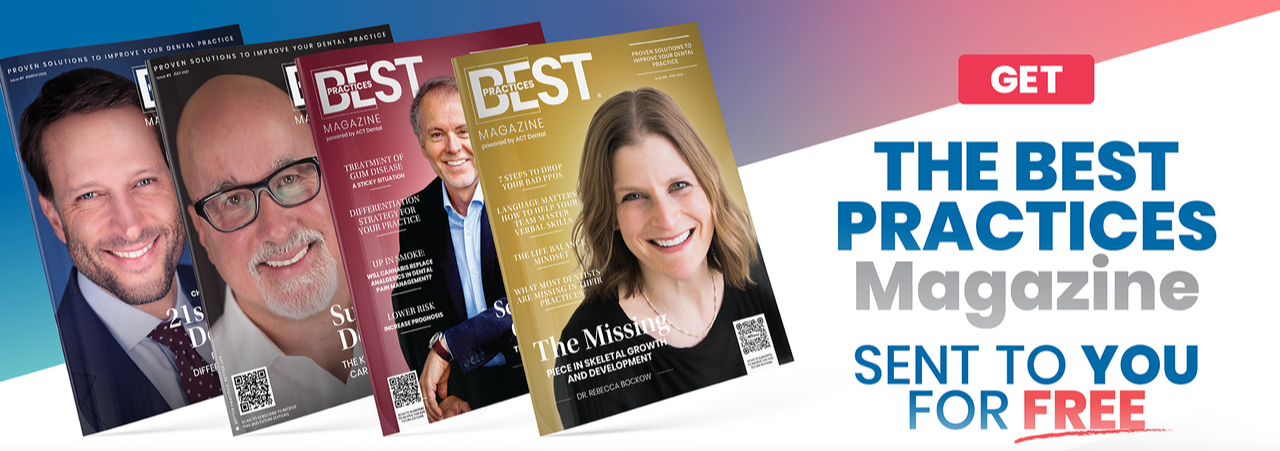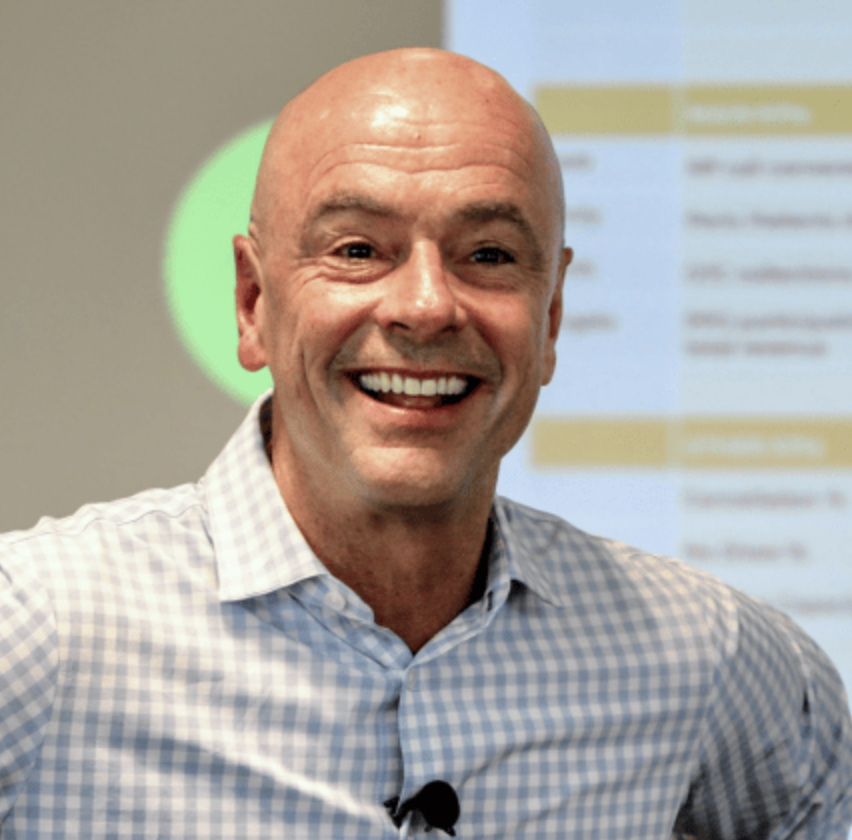Cultivate Healthy Team Culture with Peer to Peer Accountability
Communication practice goals teamwork Jun 16, 2021Overwhelmed with the task of holding your team accountable? We love the idea of peer to peer accountability, it’s a concept taken from Patrick Lencioni’s book “The 5 Behaviors of a Healthy Team.” Lencioni discussed two main steps to achieve this concept, a foundation of trust, and the ability to embrace healthy conflict.
A Foundation of Trust
Trust in general is necessary for a team to succeed. However, having vulnerability-based trust will take your practice to the next level and ensure a healthier team culture.
Most teams are comfortable engaging in what is known as predictive-based trust; we trust our peers at work to do what they have been assigned to do and to execute general tasks. We expect that they will follow through on their promises because they have a history of doing so. To take this type of trust to its pinnacle, each team member must have clear expectations of their assigned duties, tasks, and priorities. This requires the practice owner and team to be organized and have systems in place. Our coaching program aids in implementing such systems. Kirk loves the saying “If everyone owns it, no one owns it” by Milton Friedman, and it absolutely applies here.
Adding the vulnerability element adds the possibility of emotional exposure, uncertainty, and risk. It’s one thing to simply trust someone to do something, and a whole other when you risk emotional exposure. Vulnerability-based trust is about being transparent and honest; it means abandoning pride & admitting mistakes for the greater good of the entire organization. If the team is willing to admit our mistakes and weaknesses to those we work with, accept constructive criticism, and uncertainty of the future, then we are ready for the next step.
Healthy Conflict
When the vulnerability-based trust aspect is in place for every team member, healthy conflict can occur. What is healthy conflict? It's a conflict based on mutual respect and trust. In our definition, it is also our desire to achieve what is best for the organization through healthy, open debate. The intent of “conflict” is always to find the best possible answer to benefit the collective goal of the organization. It means that anyone participating in the conflict can express their thoughts and feelings or differences of opinions without intimidation. This is how we find the best answers for the team!
If team members know what is expected of them, trust each other to execute their tasks, and are comfortable with the healthy debate around what is best for the organization, then they should be more comfortable with peer to peer accountability.
The goal is to move past the pointing of fingers, accusations, and frustration when something is not getting done and instead transition to “How can I help you?” and “Do you have everything you need to be successful?” But we can’t do that if we don’t first have organizational health. Start by reading “Traction” by Gino Wickman, it’s currently a team favorite at ACT.
Achieving Success Together
Patrick Lencioni says it best in The Five Dysfunctions of a Team, “If you could get all the people in an organization rowing in the same direction, you could dominate any industry, in any market, against any competition, at any time.”
How do we get comfortable with peer to peer accountability? When everyone on the team has clear expectations coupled with individual responsibility and vulnerability-based trust, then everyone will have confidence in changing their behaviors in a way to kindly keep one another accountable.
If you do not trust one another, you will not be able to engage in healthy conflict, and if you cannot engage in healthy conflict, it will be nearly impossible to embrace accountability. Although it is truly one of the hardest things for people to do, and we know it can be difficult, it is rewarding and worthwhile.
About the Author: Heather Crockett is a Lead Practice Coach at ACT Dental. She is also a dental hygienist, motivational speaker, and writer. With over twenty years of serving in different roles in dentistry, she combines her experience to provide our community with best practices for a better life.
Categories
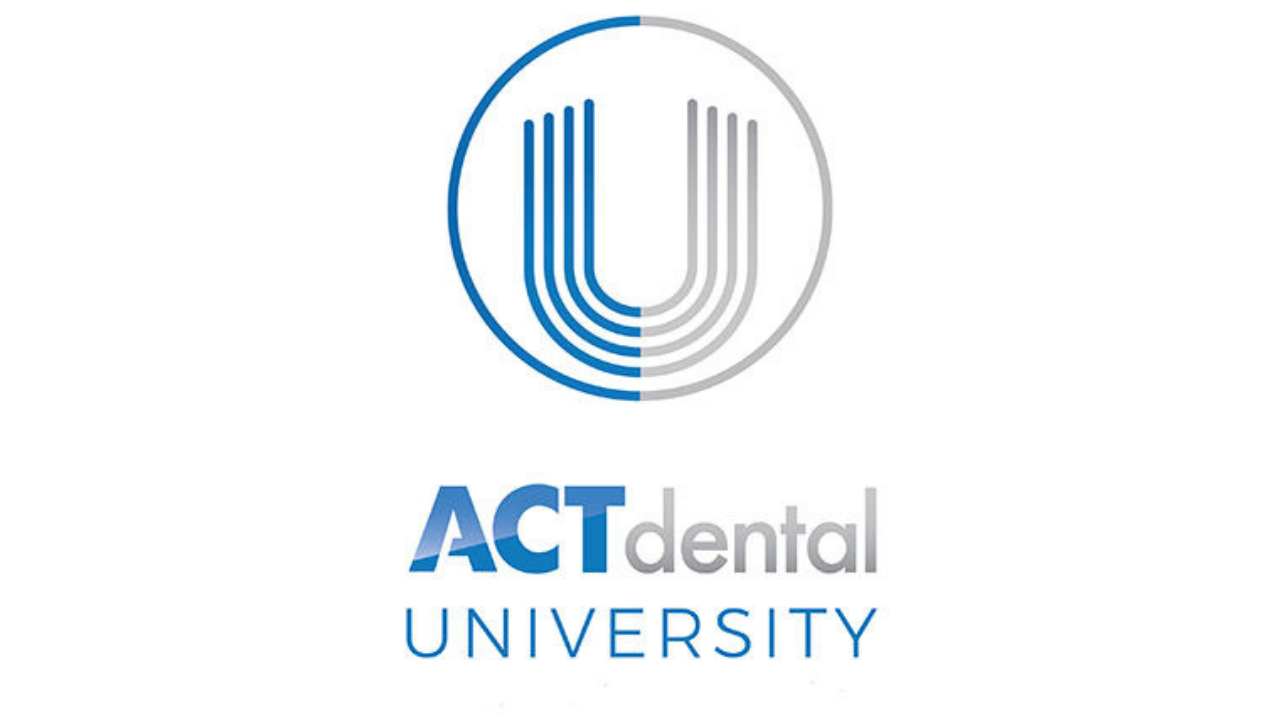
Get access to the best dental educators on the planet to bring you "best practices" and help you become the dentist you were called to be. Watch what you want, when you want it. It's 24/7 on-demand access. Friday's we host "Master Classes" with the very best dental speakers you will ever see.
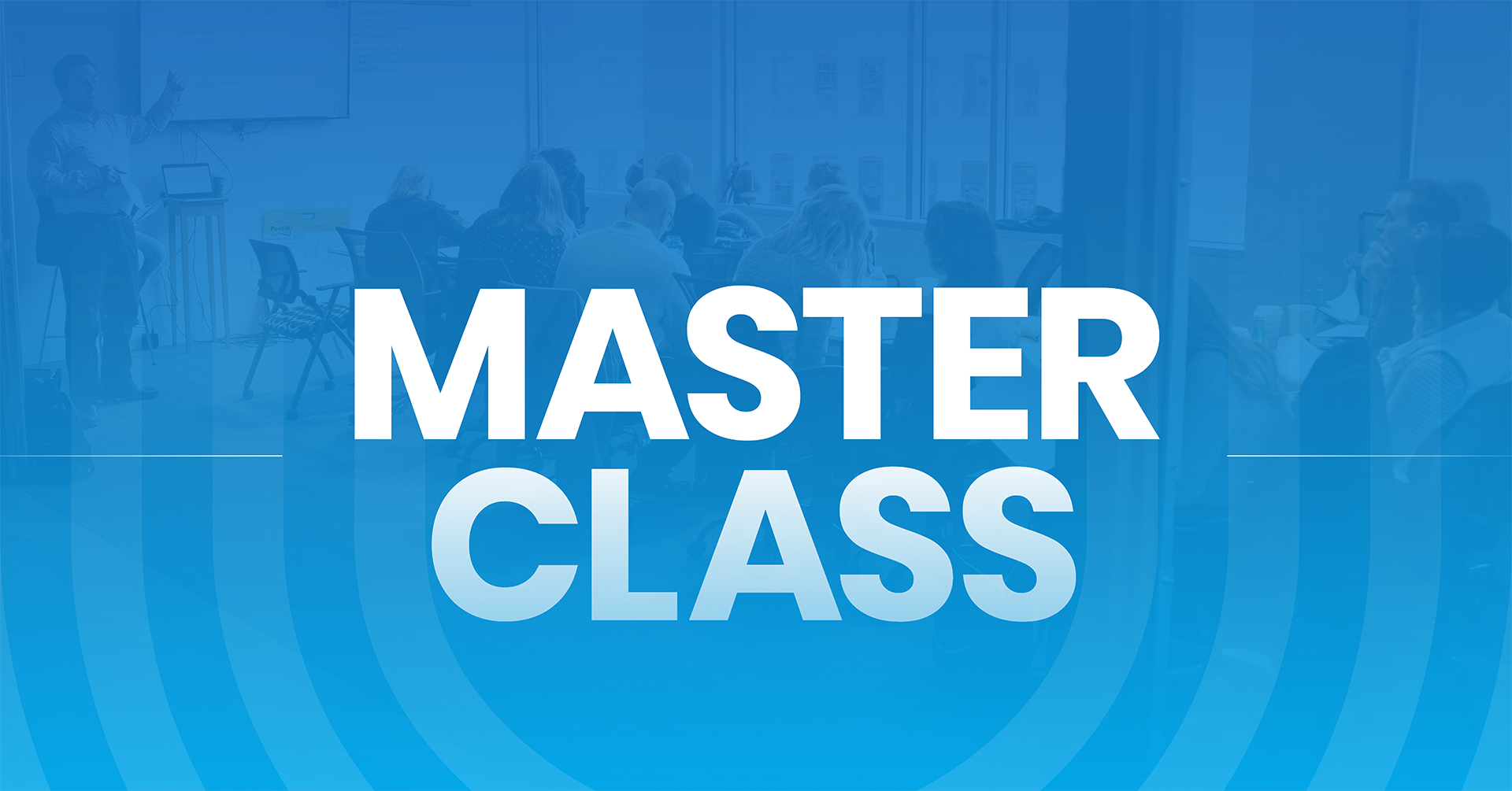
Reserve your spot at the next ACT Dental Master Class
Learn From One of the Best Educators During Our BEST PRACTICES MASTER CLASS Experience.
Kirk Behrendt
Kirk Behrendt is a renowned consultant and speaker in the dental industry, known for his expertise in helping dentists create better practices and better lives. With over 30 years of experience in the field, Kirk has dedicated his professional life to optimizing the best systems and practices in dentistry. Kirk has been a featured speaker at every major dental meeting in the United States. His company, ACT Dental, has consistently been ranked as one of the top dental consultants in Dentistry Today's annual rankings for the past 10 years. In addition, ACT Dental was named one of the fastest-growing companies in the United States by Inc Magazine, appearing on their Inc 5000 list. Kirk's motivational skills are widely recognized in the dental industry. Dr. Peter Dawson of The Dawson Academy has referred to Kirk as "THE best motivator I have ever heard." Kirk has also assembled a trusted team of advisor experts who work with dentists to customize individual solutions that meet their unique needs. When he's not motivating dentists and their teams, Kirk enjoys coaching his children's sports teams and spending time with his amazing wife, Sarah, and their four children, Kinzie, Lily, Zoe, and Bo.
RECENT POSTS
One Case Doesn't Define Your Practice!
February 16, 2026
Ask the Right Questions to Hire the Right People
February 13, 2026
Bring Back Common Sense
February 09, 2026
Data Snapshot: Treatment Dollar Amount Acceptance Percentage
February 06, 2026
The Sweet-Spicy Formula For Confident, Kind Collections
February 02, 2026
Reveal Your Practice’s Hidden Profits
January 30, 2026
1000: Metric Mondays: Supplies Percentage - Ariel Siegel
January 26, 2026
5 Simple Ways To Build Trust Today
January 26, 2026
Data Snapshot: Patient Acceptance Percentage
January 23, 2026
